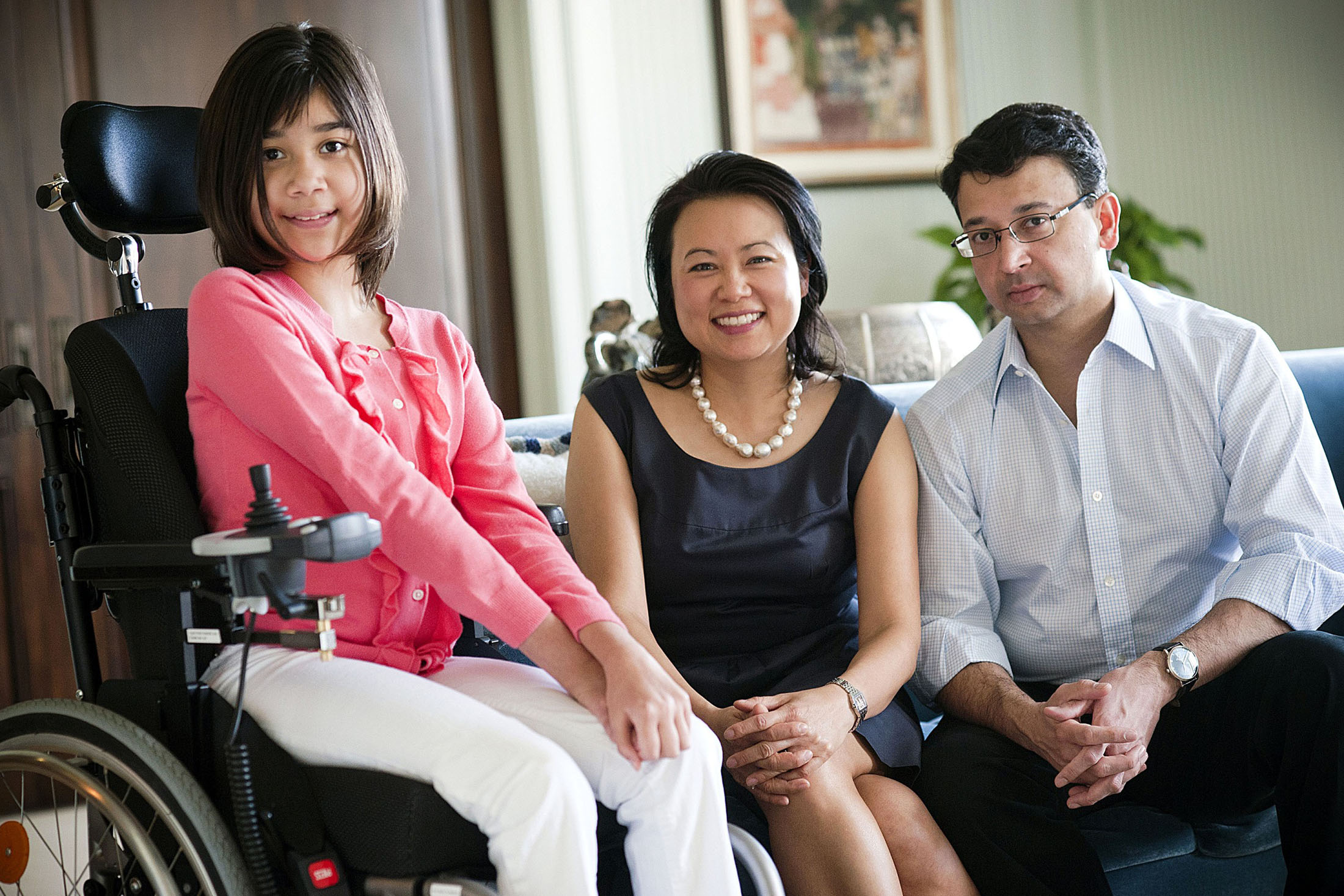Contents:
- Medical Video: 08 common Interview question and answers - Job Interview Skills
- 1. Speak openly and honestly
- 2. Use language that is simple and easy to understand
- 3. Focus on excess children
- 4. Ask questions to the child
- 5. Invite children to join the disability community
Medical Video: 08 common Interview question and answers - Job Interview Skills
Raising children who have physical limitations and / or cognitive limitations (including developmental disorders and learning disorders) is not easy. Even so, it is important for you to speak openly and honestly to your child regarding the conditions he has. So, how to give understanding to children with disabilities?
1. Speak openly and honestly
Raising children with disabilities and special needs is indeed a challenge for parents. This is not uncommon to make parents difficult to explain to children regarding their condition. Some parents also choose to avoid answering children's questions if the child asks about their different conditions with their peers.
Ignoring or even avoiding sensitive topics related to the child's condition makes it difficult for them to recognize themselves. In the end they will get used to living with that ignorance until adulthood.
For example, if a child is not told that he has autism, maybe they will never understand why he is very difficult to socialize with his peers. Well, this is precisely what will make children think that something is wrong with the way they get along, so that they will grow and believe that everyone doesn't like him.
Similarly, if there is a child who experiences learning disabilities (dyslexia). If children do not know that they have this condition, maybe they will consider themselves more stupid than other friends. Even though it's not like that. Children with dyslexia are only more difficult to understand lessons in terms of visual and sound, so it takes longer to digest lessons in school.
That is why, if you show your child the true condition, this will make the child no longer feel anxious, afraid, or ashamed about his shortcomings. Not only that, your child also tends to be more comfortable when he knows that you are fine and accept all their conditions as they are.
2. Use language that is simple and easy to understand
Disability, disability, or self-limitation can be physical, cognitive, mental, sensory, emotional, developmental, or some combination of these. That is why, you must first understand the condition of your child's disability. Because this will affect how children digest information from you.
Regardless of this, start explaining about the condition briefly, densely, and clearly with a sentence that is easily understood by the child. Avoid using long and complicated and negative connotations like "can't walk," "can't hear," and so on.
Not only that, if your child is under 10 years old, you do not need to explain his condition using complicated medical language because it makes it difficult for the child to understand what you are talking about.
Remember, if your child wants more information, he will ask more questions or he will ask the same question again in a different way later. So, answer the questions they submit briefly and don't need to be twisted.
3. Focus on excess children
Don't just worry about your child's limitations. It is important for you to instill in children with disabilities that when someone cannot do something in a field, it does not mean they cannot excel in other fields.
Tell him that they also have a myriad of advantages that most people might not have. Also, make sure your children know that children with disabilities and special needs do not prevent them from achieving.
Children with disabilities and special needs often feel that they are the worst and ultimately they are not confident. Well, here is your role to instill their confidence. Do not hesitate to give praise and positive comments to children starting from the smallest things a child can do.
Talk about all the things the child likes and support it. By getting support from the people closest to him, it will make children better recognize their skills and talents so that they are more confident.
4. Ask questions to the child
As you age, your child will probably have various questions about his life going forward, starting from puberty to his future career. Unfortunately, they often discourage these questions for fear of making you annoyed or even worried.
Even so, explain that you are happy to answer questions at any time. Not only that, make sure your children also know that they can also ask questions to other people, such as doctors or other care team members.
You can encourage discussion by asking questions such as, "You are curious, why do you have to routinely drink various kinds of medicine?" Or, "What do you feel when on the road there are people whongeliatinyou continue? "and such questions.
5. Invite children to join the disability community
You can consider joining a diffable community or with special needs - either directly or on line- where you can talk and share information with other parents about children who have similar problems.
Usually, disabled or disabled people will often hold meetings. Well, this activity can be a place to invite children to socialize with people around. Before asking him, it's a good idea to talk to your child.
If your child is interested, try to facilitate this activity. Spending time with other children who also experience similar obstacles can help children reach their greatest potential. Not only that, it also makes children realize that they are not living alone.












